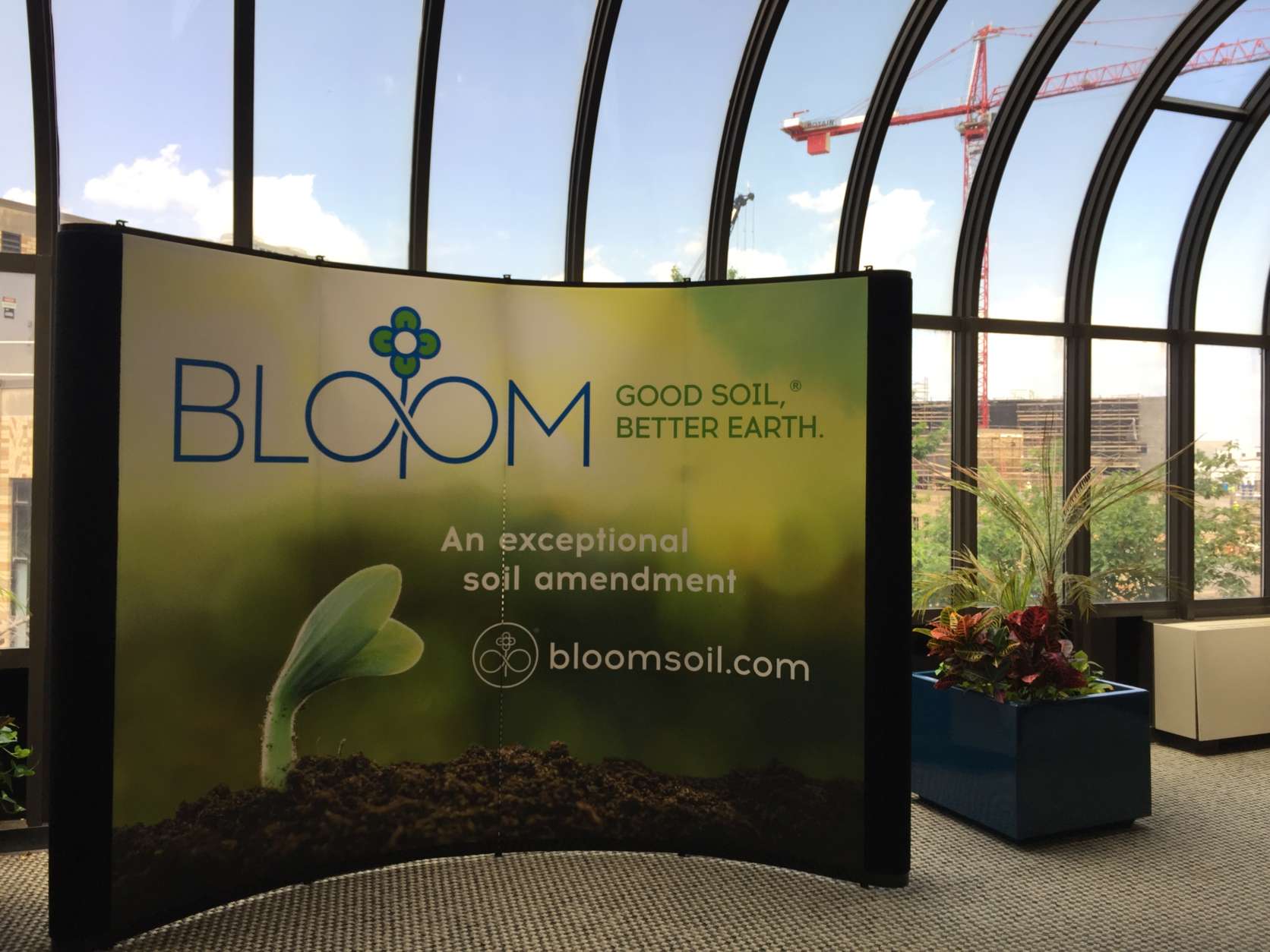
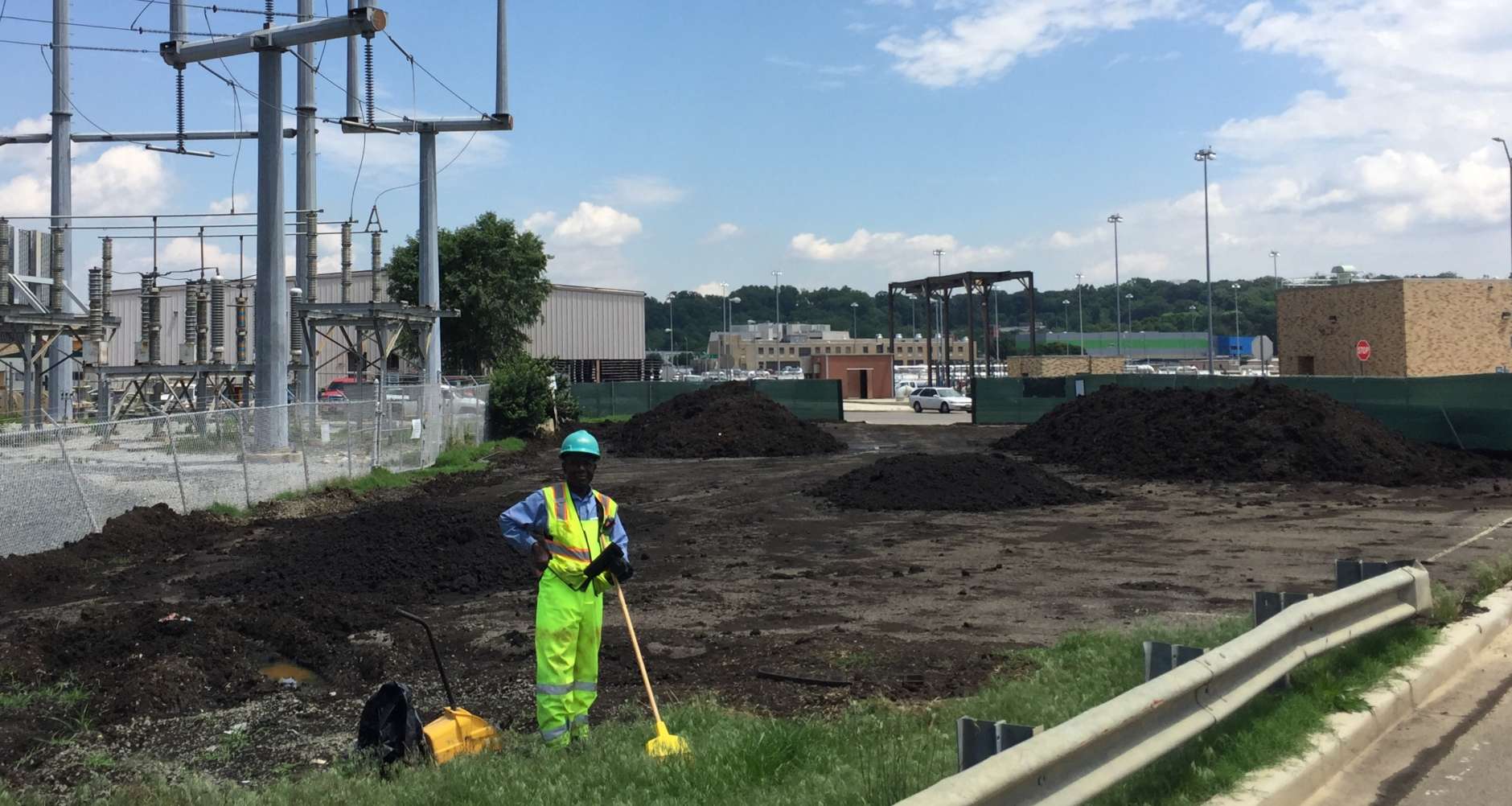
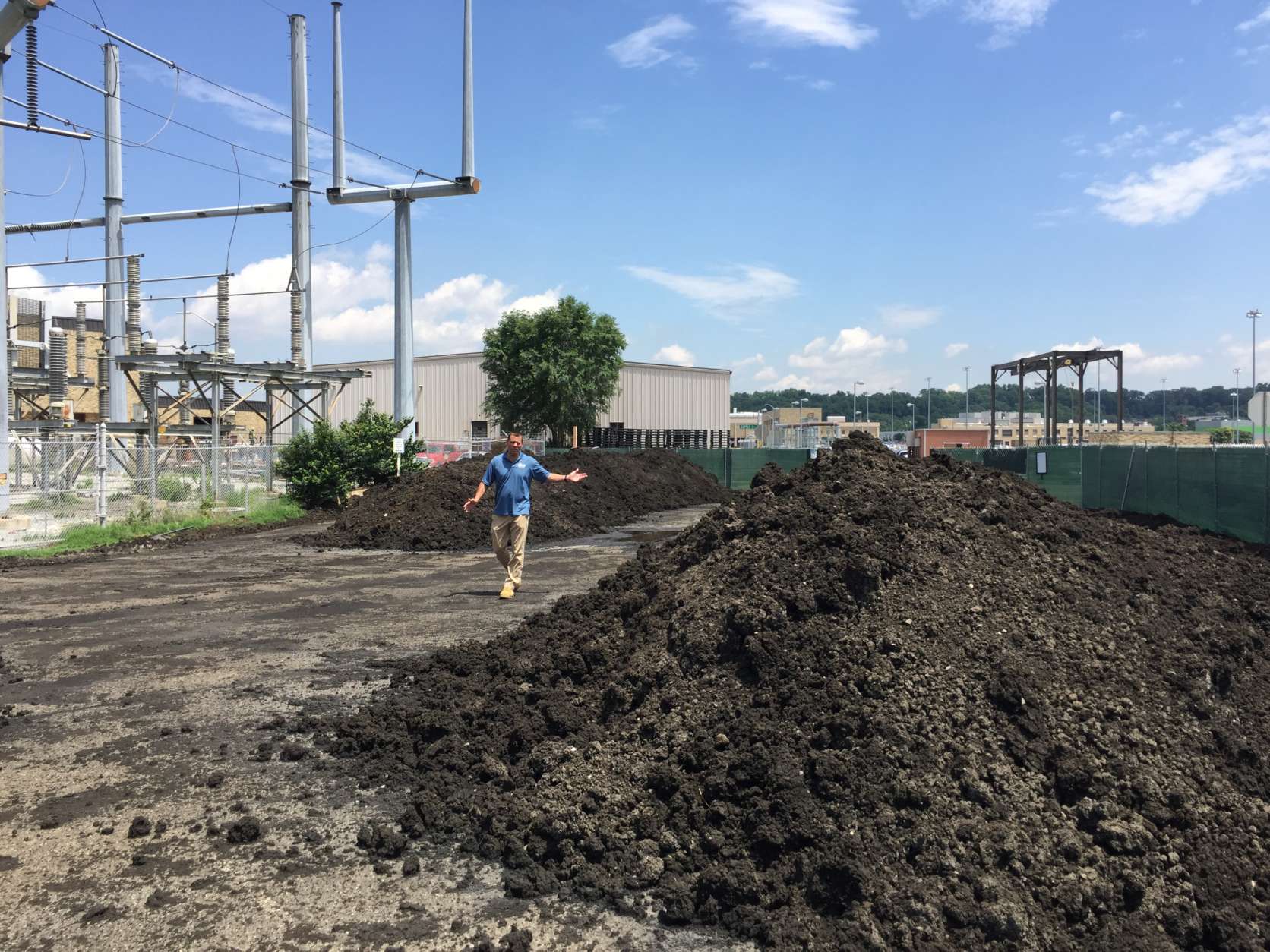
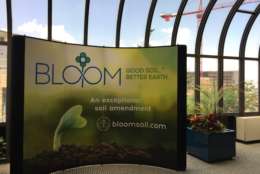
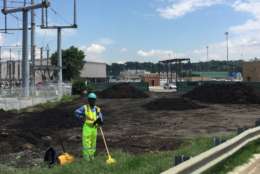
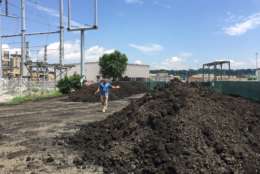
WASHINGTON — From solid waste, DC Water creates a nutrient-rich product similar to soil that can be added to gardens to help plants grow.
“After you flush the toilet and the poop arrives here at Blue Plains, we treat it,” said Vincent Morris, DC Water spokesman.
The end result is a product called Bloom.
“We call it a ‘soil amendment.’ It’s not technically soil, because it’s not from the earth. This is biosolids,” Morris said.
“Bloom is solids that have been superheated to a temperature that breaks them down and renders them harmless, and then they become a very valuable resource.”
DC Water sells Bloom for use in D.C. and Maryland by home gardeners, large nurseries and farms. It’s also supplied to the city for tree-planting projects. Soon, it also will be offered in Pennsylvania and Virginia.
“It’s much less expensive than most garden products, and—we believe—comparable. And of course (it) has the advantage of being local,” Morris said.
He added that Bloom is a good example of sustainability, “in that [waste is] being repurposed for growing flowers or vegetables rather than simply being disposed of.:
Bloom costs $5 per cubic yard and can be picked up at the Blue Plains wastewater treatment plant. It also can be delivered for a small charge.







